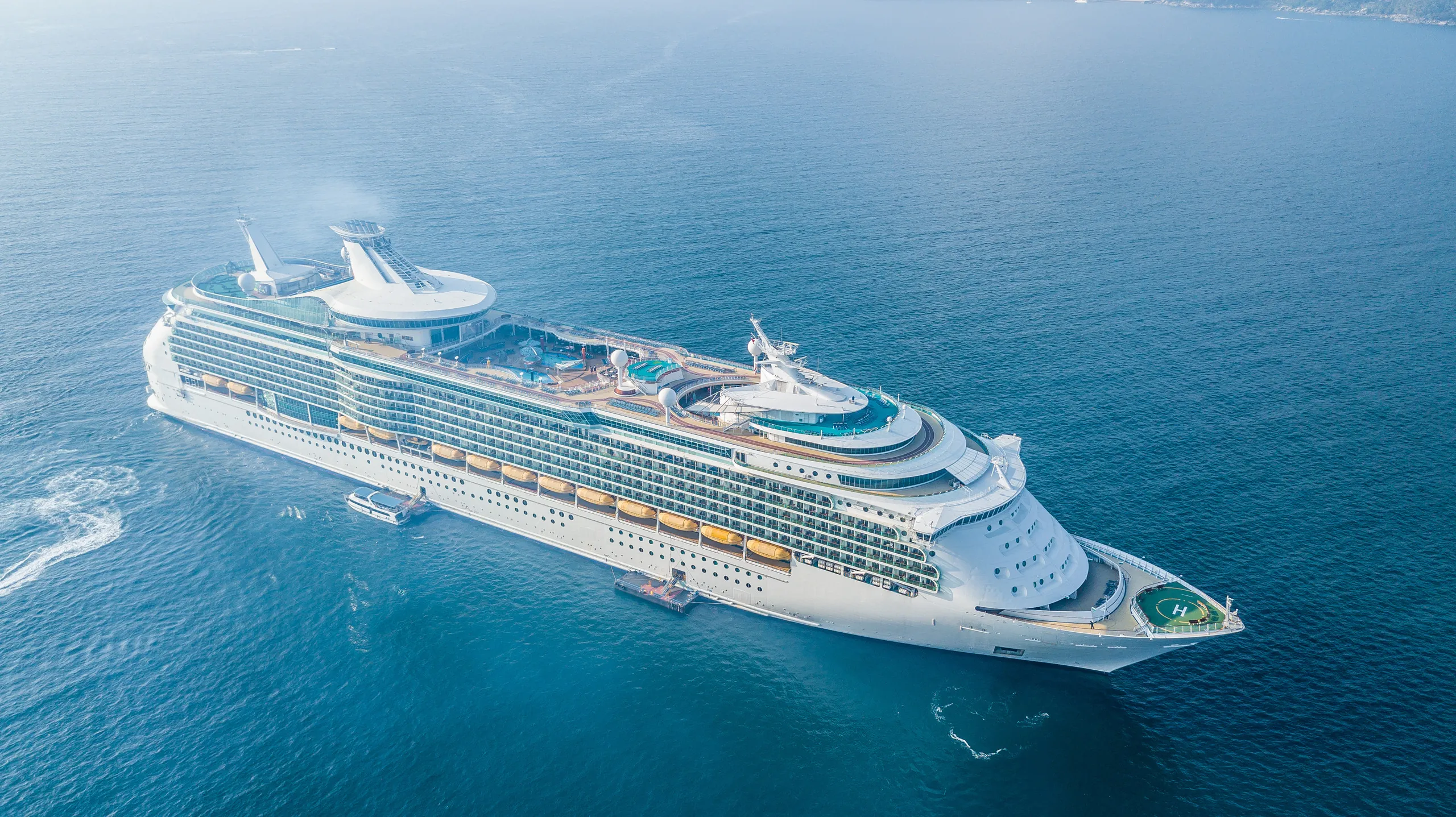Cruise vacations promise luxury and relaxation, but when legal issues arise—such as injuries, crimes onboard, or disputes over your rights—things can get complicated fast. Unlike incidents that occur on land, cruise-related legal matters fall under a different set of rules known as admiralty law, or maritime law.
Understanding how maritime law governs cruise travel is critical for protecting yourself legally before, during, and after your trip. This guide walks you through the essentials of admiralty law, cruise ship passenger rights, and what legal options you have if something goes wrong at sea.
What Is Admiralty Law?
Origins and Scope of Admiralty Law
Admiralty law is a specialized branch of law that governs legal matters occurring on navigable waters. It originally developed to regulate shipping and maritime commerce but now covers passenger injuries, criminal jurisdiction, contracts, and vessel liability.
Where Admiralty Law Applies
Maritime law applies on oceans, seas, and large inland waterways that support interstate or international travel. When you’re on a cruise ship, admiralty law determines how accidents, injuries, crimes, and environmental violations are handled.
How Cruise Ship Laws Differ from Land-Based Laws
Different Legal Systems at Sea
Land-based personal injury or civil laws may not apply when you’re at sea. Instead, incidents that occur onboard are typically governed by international conventions, treaties, and laws of the vessel’s flag state—the country where the ship is registered.
Why Flag States Matter
Most cruise lines register their vessels in countries like Panama, the Bahamas, or Liberia. These “flags of convenience” allow cruise companies to benefit from more favorable labor, liability, and safety laws than they might encounter under U.S. jurisdiction.
Understanding Jurisdiction at Sea
What Is Legal Jurisdiction?
Jurisdiction refers to which country or legal system has the authority to hear and resolve a legal dispute. For cruise passengers, this is often determined by where the ship is registered, where the incident occurred, and what your cruise contract says.
Examples of Jurisdictional Complexity
If you’re injured on a ship registered in the Bahamas while it’s in international waters, Bahamian law may apply. However, if you’re a U.S. citizen and the cruise departed from Florida, you may still have certain legal rights under U.S. law. These conflicts can make it challenging to know where—and how—to file a lawsuit.
Your Legal Rights as a Cruise Passenger
The Legal Contract in Your Cruise Ticket
When you book a cruise, you’re agreeing to a detailed legal contract—whether you read it or not. This contract often includes a forum selection clause (dictating where lawsuits must be filed), an arbitration clause, and time limits for filing claims.
What the Contract Might Say
Many cruise contracts specify that claims must be filed in Miami, Florida, even if the cruise departed from another location. Others require disputes to be resolved through private arbitration, limiting your right to take the cruise line to court.
What If You’re Injured on a Cruise?
Common Types of Injuries
Injuries onboard cruise ships can range from slips and falls to medical negligence and food poisoning. Poorly maintained facilities, untrained crew, and lack of adequate safety measures can all contribute to passenger injuries.
The Cruise Line’s Duty of Care
Under maritime law, cruise lines owe passengers a duty of reasonable care. This means they must take steps to prevent foreseeable harm and maintain safe conditions throughout the ship.
Holding a Cruise Line Accountable
To hold a cruise line legally responsible, you must show that they were negligent—that is, they knew or should have known about a dangerous condition and failed to correct it. This can be difficult to prove without documentation.
What to Do After an Injury at Sea
Immediate Action Steps
If you’re injured, notify the ship’s staff immediately and request an official incident report. Seek medical attention onboard, even for minor injuries. Keep copies of all documentation, take photos of the scene, and collect witness information.
Legal Deadlines You Need to Know
Cruise contracts often require that you notify the cruise line of your injury within 180 days and file a lawsuit within one year. Missing these deadlines can result in losing your right to sue, regardless of how serious the injury was.
Can You Sue a Cruise Line?
The Role of Admiralty Courts
Cruise injury cases are typically handled by admiralty courts, which specialize in maritime matters. These courts apply different procedures and rules than civil courts, so working with a maritime lawyer is essential.
Limits on Compensation
Some cruise contracts may cap the amount of compensation you’re entitled to or limit the types of damages you can claim. For example, punitive damages may be excluded, and certain injuries (such as those from excursions not directly run by the cruise line) may be non-compensable.
Criminal Incidents on Cruise Ships
What Happens If a Crime Occurs?
Crimes like assault, sexual misconduct, and theft can and do occur onboard cruise ships. Determining who investigates and who prosecutes depends on several factors: the location of the ship, its flag state, and the nationalities of those involved.
Who Has Authority to Investigate?
If the crime occurs within U.S. waters, federal authorities like the FBI may have jurisdiction. If the ship is in international waters, the flag state typically takes over. If docked in a foreign port, local police may be the ones who respond.
Safety and Environmental Compliance on Cruise Ships
Who Sets Safety Standards?
The International Maritime Organization (IMO) is responsible for setting global safety standards for passenger ships. Through conventions like SOLAS (Safety of Life at Sea), the IMO regulates emergency preparedness, life-saving equipment, and crew training.
Environmental Responsibilities
Cruise ships generate large amounts of waste, and they are subject to international environmental laws regulating sewage, greywater, and air emissions. Some ships have been fined for illegal dumping or violating emissions caps.
Why It’s Difficult to Sue a Cruise Line
The Challenge of Foreign Registries
Because most cruise ships are registered outside the U.S., passengers often must file lawsuits in foreign jurisdictions or in specific courts dictated by their ticket contract.
The Role of Forum Selection Clauses
Forum selection clauses require you to file your lawsuit in a specific court, such as one in Miami, regardless of where the injury occurred or where you live. This increases travel and legal costs and discourages passengers from pursuing valid claims.
Protecting Your Rights as a Cruise Passenger
Read the Fine Print Before You Sail
Always read the full terms and conditions of your cruise contract before departure. Pay special attention to clauses involving time limits, forum selection, and liability waivers.
Be Proactive During the Cruise
If something seems unsafe, report it immediately. Document your environment and keep copies of any communications you have with the cruise line.
When to Contact a Maritime Lawyer
If you’re injured on a cruise ship or are a victim of a crime at sea, it’s essential to speak with an attorney who specializes in admiralty law. Maritime legal claims are unique, and general personal injury attorneys may not understand the complexities involved.
Working with a qualified lawyer ensures that your claim is filed in the right jurisdiction, within the proper time limit, and with the correct legal arguments to maximize your chance of success.
Frequently Asked Questions About Cruise Ship Legal Rights
Can I sue a cruise line if I’m injured onboard?
Yes, you can sue a cruise line if you are injured due to negligence or unsafe conditions. However, the process is different from traditional personal injury cases. Cruise injury claims fall under maritime law, which has specific procedures and deadlines. Many cruise lines require that you notify them of your injury within six months and file a lawsuit within one year. It’s also common for cruise contracts to include a forum selection clause requiring you to bring the lawsuit in a specific court, such as in Miami, regardless of where the cruise departed or where you live. Because of these complexities, it’s essential to consult a maritime attorney as soon as possible after your injury.
Do cruise ships follow U.S. safety regulations?
Not always. While cruise ships that dock at U.S. ports are subject to U.S. Coast Guard inspections and must meet certain U.S. safety standards, many ships are registered in foreign countries and primarily follow the regulations of their flag state. International laws, particularly those established by the International Maritime Organization (IMO), provide minimum safety standards that ships must meet. However, those standards may not be as rigorous as those set by U.S. authorities. This makes enforcement inconsistent and often places the burden on passengers to hold cruise lines accountable for safety violations.
What happens if a crime occurs on a cruise ship?
When a crime happens at sea, jurisdiction can be complicated. If the ship is within U.S. waters, federal authorities like the FBI may have jurisdiction. If the ship is in international waters, the legal authority typically defaults to the flag state, or the country where the ship is registered. If the ship is docked in a foreign port, local law enforcement may handle the situation. Investigations can be delayed or mishandled depending on the location, which is why it’s important to report crimes immediately and consult legal counsel familiar with maritime law.
Are cruise lines responsible for injuries that occur during shore excursions?
That depends on who operated the excursion. If the shore excursion was organized and run directly by the cruise line, and your injury was caused by negligence, the cruise line may be held liable. However, many cruise lines use third-party vendors for excursions and include language in their contracts that waives their responsibility for injuries sustained during those activities. Even so, there may be cases where the cruise line can be held accountable if they failed to vet the third-party provider or misrepresented the safety of the excursion.
How much time do I have to file a claim for an injury or incident on a cruise?
Most cruise contracts include strict time limits for filing a claim. Typically, you must give written notice of your injury to the cruise line within 180 days of the incident and file a lawsuit within one year. These deadlines are shorter than the statute of limitations for many land-based personal injury claims and are enforceable under admiralty law. If you miss these deadlines, your case may be dismissed regardless of its merit. That’s why it’s crucial to act quickly and contact an attorney who understands maritime legal timelines.
Contact The Cruise Injury Law Firm Today
Cruise travel offers unforgettable experiences, but it also comes with unique legal risks. When something goes wrong at sea, your rights are governed by maritime law, not the legal system you’re used to on land. Understanding admiralty law, knowing how cruise contracts work, and being prepared to act quickly can make all the difference.
If you’ve been injured, harassed, or harmed while on a cruise, contact The Cruise Injury Law Firm today. These legal professionals can help you understand your options and pursue the justice and compensation you may be entitled to.





